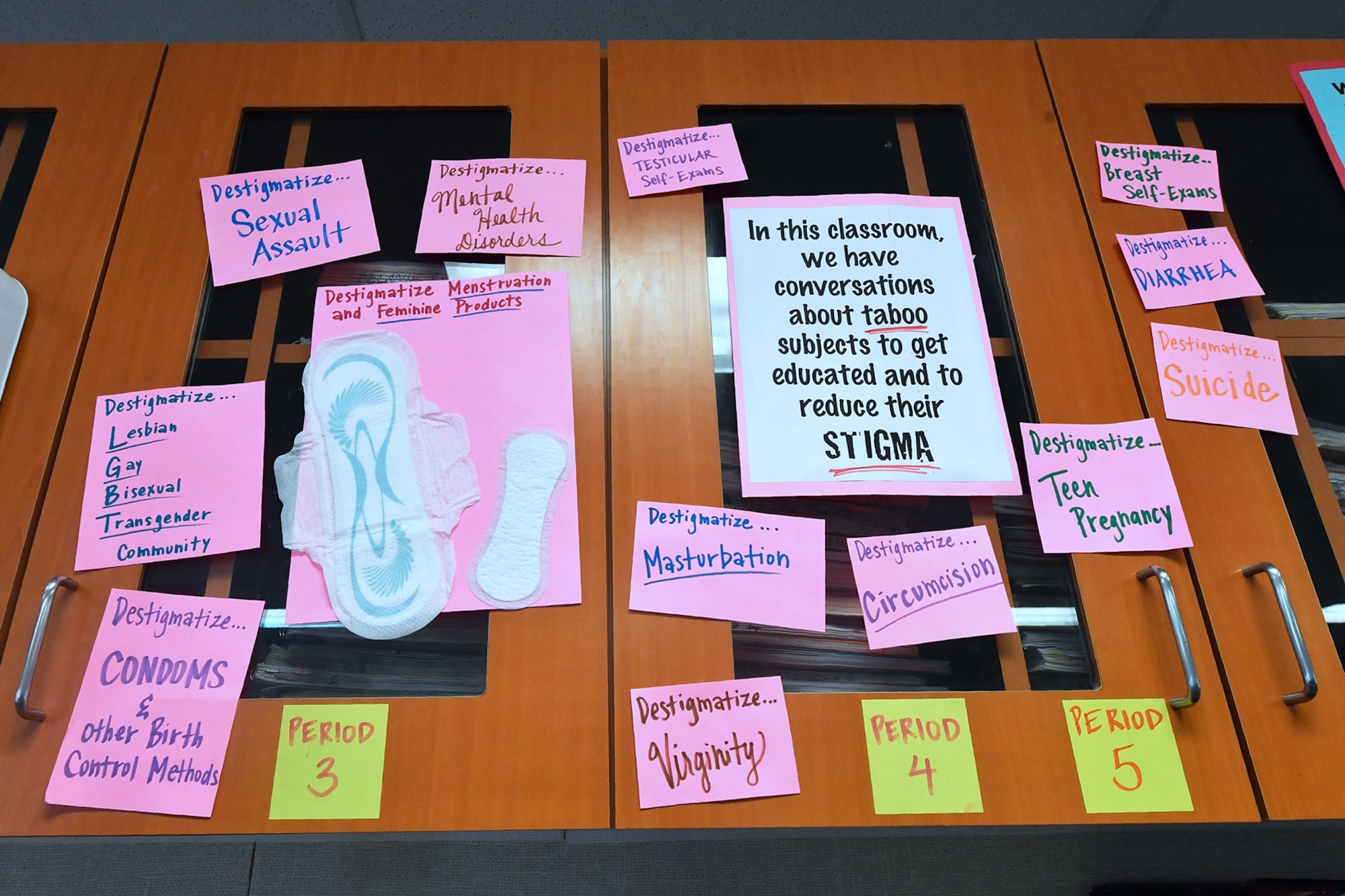Sign up for Chalkbeat’s free weekly newsletter to keep up with how education is changing across the U.S.
The Trump administration is threatening to pull federal funding from 40 states for a sex education program aimed at vulnerable teens unless those states remove references in their curriculum to gender identity and transgender people.
In a Tuesday press release, the U.S. Department of Health and Human Services said the action reflected the Trump administration’s “ongoing commitment to protecting children from attempts to indoctrinate them with delusional ideology.”
The threat comes after California refused to change its curriculum last week and HHS terminated the state’s nearly $6 million-a-year grant.
The states that received notices to change their curriculum are: Alabama, Alaska, Arizona, Colorado, Connecticut, Delaware, Georgia, Hawaii, Illinois, Iowa, Kentucky, Louisiana, Maine, Maryland, Massachusetts, Michigan, Minnesota, Mississippi, Missouri, Montana, Nebraska, Nevada, New Jersey, New Mexico, New York, North Carolina, Ohio, Oklahoma, Oregon, Pennsylvania, Rhode Island, South Carolina, South Dakota, Tennessee, Utah, Vermont, Washington, West Virginia, Wisconsin, and Wyoming.
Withholding federal funds to punish states for teaching about gender identity is yet another way the Trump administration has sought to control what young people learn and advance the president’s view that there are only two sexes, male and female.
Through numerous civil rights investigations and lawsuits, the Trump administration is also seeking to prevent trans girls from playing on girls’ sports teams and stop schools from letting trans kids use the bathroom or locker room that corresponds with their gender identity.
States will have 60 days to comply or risk losing their federal funds for the Personal Responsibility Education Program, or PREP.
PREP represents a small slice of sex ed nationwide, and provides most states with just a few million dollars a year. But it targets a particularly vulnerable group of teens and pre-teens who are at a higher risk for pregnancy and sexually transmitted infections. In California, many of the 13,000 young people who participate each year live in foster care, are incarcerated, or are experiencing homelessness.
Back in June, HHS told California that it was out of compliance with the federal law that established PREP, because its materials included instruction about what it means to identify as transgender and that gender identity is not always synonymous with the sex someone is assigned at birth. The agency subsequently reviewed curriculum used by other states — many of which use some of the same materials as California.
In the termination announcement, HHS also said that parts of California’s curriculum “could encourage kids to contemplate mutilating their genitals, ‘altering their body … through hormone therapy,’ ‘adding or removing breast tissue,’ and ‘changing their name.’” This appears to refer to the possibility that students might socially transition or pursue gender-affirming medical care.
California officials told HHS that they wouldn’t change their materials because they were medically accurate, previously approved by the agency, and compliant with federal law — which is silent on whether PREP should teach about gender identity. State health officials also said that changing the curriculum could prompt public schools that use the same materials to drop them, because California law requires sex ed to include information about gender identity.
A spokesperson for the state’s public health department did not respond to Chalkbeat’s questions about how it planned to address the funding gap. California health officials told the Trump administration they reserved the right to challenge the funding termination, but they have yet to do so.
Kalyn Belsha is a senior national education reporter based in Chicago. Contact her at kbelsha@chalkbeat.org.







